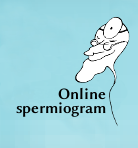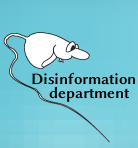PR strategy – child
I know, I know. It sounds absurd. Why should you sit down and agree on a PR strategy towards a child that doesn’t exist yet? You don’t even know when it’s going to happen! Well, precisely because they think it’s absurd, people’s greatest mistake is that they don’t come up with a strategy.
What to say to your kid about the circumstances of his or her birth, how to say it, and whether to say it at all are all fundamental questions. If you end up adopting, the agency should provide you with some information and recommend the relevant literature.
In English-speaking countries, there is a trend towards full openness towards the child, especially when it comes to donated sperm or eggs. Some countries have “open identity” laws allowing children to know the identity of their biological parents (the sperm or egg donor) after they have reached a certain age, usually adulthood. As a result, donors are limited to those people who agree with this “open identity.” Sometimes, you can even look up other children (half-siblings???) from the same donor.
According to the Czech law that regulates assisted reproduction (Act no. 227/2006), sperm or egg donation is anonymous. Donors are healthy people who have been medically screened. Assisted reproduction centers usually provide at least some (non-personal) information on their donors. Data is archived for 30 years and can be accessed with a court order in urgent medical situations, such as when the child requires a kidney transplant, and the donor may be a good candidate for organ donation. Of course, this opens up all kinds of other issues: is it ethical to ask someone whose only tie to the child is genetic to provide a kidney? Adam tried to find out if any such situation has ever happened in the Czech Republic. None of the experts I talked to knew of any.
Both anonymity and open identity come with certain risks. Neither solution is perfect. These are complicated issues, which I will keep updated in the section entitled Gamete donation. But here is what you should do right away: plan in advance what you are going to tell your future child. You can’t decide to tell your child nothing while at the same time telling everyone around you that you might need an egg or sperm donor. Not to mention that if you decide for openness, you might consider the possibility that the first person to tell about having used a donor should be the child itself...









